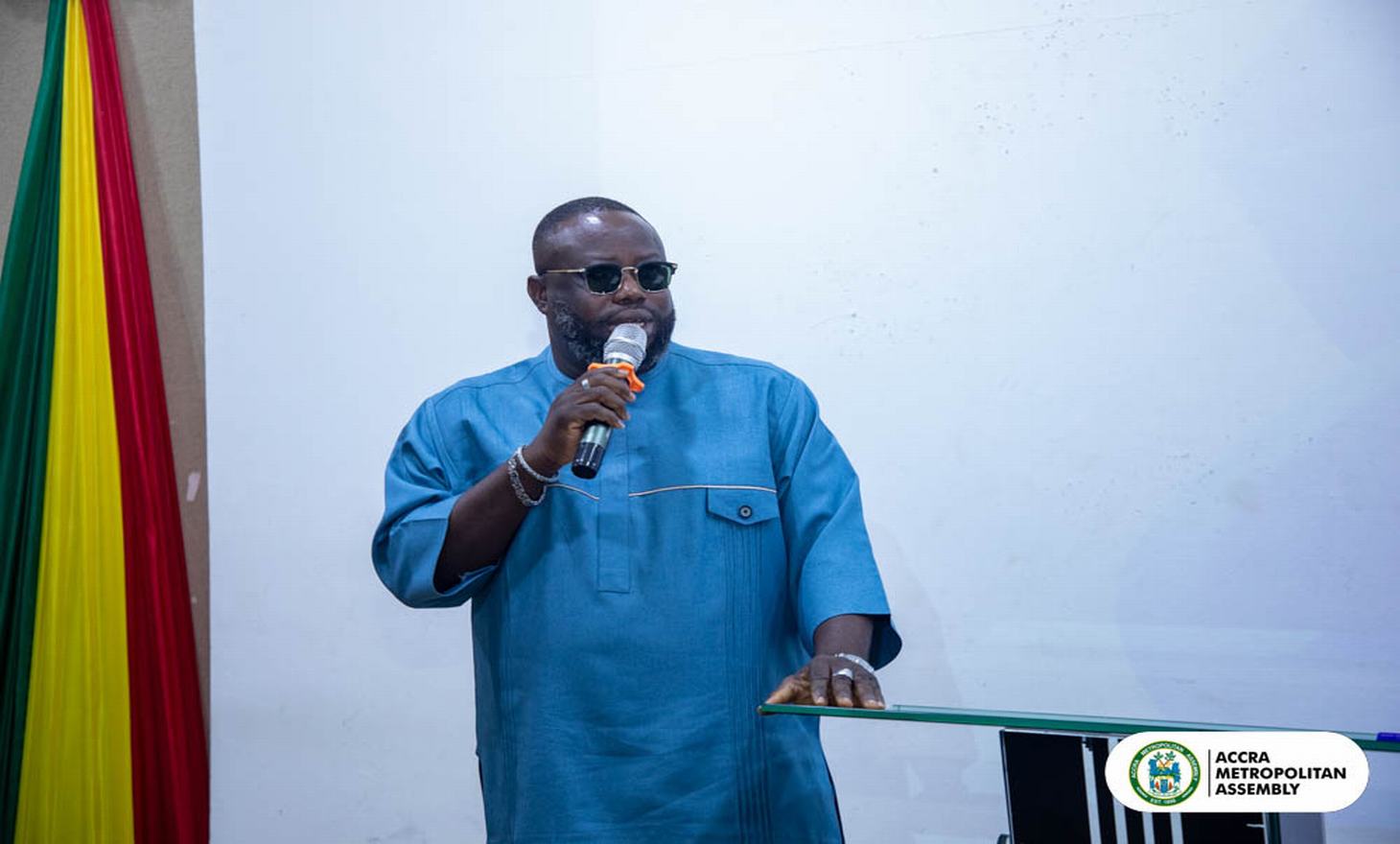Pay for your fees and charges Pay Now
+233 (0) 243 211 345 info@ama.gov.gh GA-143-6657
Pay for your fees and charges Pay Now
+233 (0) 243 211 345 info@ama.gov.gh GA-143-6657


The Mayor of Accra, Hon. Michael Kpakpo Allotey, has called on Metropolitan, Municipal, and District Assemblies (MMDAs) in the Greater Accra Region to ensure that their 2026 budget reflects the true priorities and aspirations of citizens for inclusive and sustainable urban development.
This, according to him, would ensure that the Assemblies’ fiscal decisions translate into real improvements in the daily lives of citizens and support Accra’s broader transformation agenda under the “Reset Accra” agenda.
Speaking at the Annual Regional Budget Hearing of Metropolitan, Municipal, and District Assemblies (MMDAs) organised by the Ministry of Finance in collaboration with the Greater Accra Regional Coordinating Council (GARCC) on Monday at the Accra Metropolitan Assembly (AMA), the Mayor in his welcome address said the 2026 budget should reflect the priorities of ordinary citizens and align with Accra’s developmental agenda.
He stated that the AMA remained committed to prudent financial management, transparency, and accountability in the use of public resources, stressing that fiscal planning must translate into tangible improvements in sanitation, infrastructure, health, education, and local economic empowerment.
“The budget is not just a financial document, it is a social contract between the government and the people,” he said, adding that the AMA would continue to prioritise projects that address residents’ most pressing challenges, particularly in waste management, flood control, and youth employment.
Mayor Allotey revealed that the Assembly was set to reintroduce the “Tankas” sanitation inspectors to visit homes and communities to ensure environmental cleanliness
“I am bringing back the tankas, and we will provide them with uniforms. I plan to launch this initiative by the 20th of November, before we celebrate Christmas. When people know that the tankas are coming, they make sure to keep their surroundings clean because they know that unsanitary conditions will attract penalties,” he said, adding that the exercise would significantly reduce disease outbreaks.
Mayor Allotey also announced the introduction of a 24-hour sanitation operation system to complement Accra’s transformation into a 24-hour city.
“Our markets operate 24 hours, our offices are running 24 hours, and soon, our sanitation operations will do same,” he stated. “Currently, when we clean in the evening, by the next morning someone dumps refuse again. But with a 24-hour system, we will maintain continuous cleanliness and safety.”
In a speech read by the Chief Director of the Regional Coordinating Council, Mrs. Lilian Baeka, on behalf of the Greater Accra Regional Minister, she reiterated the government’s commitment to ensuring that medium-term policies are translated into implementable programmes that directly respond to citizens’ needs.
Mrs. Baeka emphasised that fiscal management challenges still persist, including low internally generated funds, dependence on central government transfers, weak revenue systems, poor property valuation rolls, and leakages in revenue collection.
She pointed out that although programme-based budgeting had been adopted, gaps remain in target setting and resource monitoring, affecting the effectiveness of service delivery.
She urged all Assemblies to adhere strictly to financial regulations, strengthen budget systems, and enforce expenditure controls to prevent audit queries and financial irregularities.
Mrs. Baeka called on Assemblies to work closely with development partners and the private sector to support infrastructure, sanitation, and social projects, stressing that “together, we can build a region that is fiscally responsible, development-focused, and community-driven.”
A representative from the Ministry of Finance, Deborah Offei, explained that the hearings were being held concurrently across all 16 regions as part of preparations for the 2026–2029 Composite Budget, in line with Regulation 17(3) of the Public Financial Management Regulations.
The annual hearings, instituted in 2011, form part of Ghana’s fiscal decentralisation reforms aimed at deepening participatory governance, providing a platform for 29 MMDAs within the Greater Accra Region to review their financial performance, deliberate on local priorities, and align their medium-term development plans with the national budget framework.